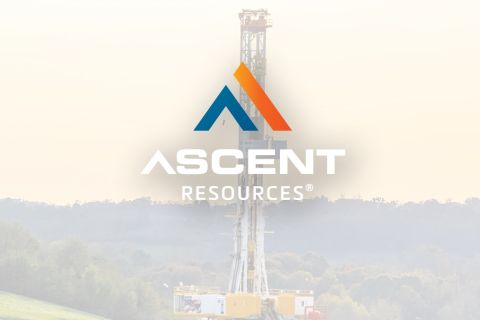
The University of Oklahoma is becoming one of many universities in the U.S. to offer courses in carbon capture, utilization and storage. (Source: Shutterstock.com)
As interest in carbon capture, utilization and storage (CCUS) continues to grow around the world, so does the need for qualified professionals with skills specific to that field. As a response, several of the major petroleum engineering and geology programs at U.S. universities have established and are growing both their undergraduate and graduate instruction in the field.
Louisiana State University (LSU) began offering an undergraduate concentration in CCUS last year, with the first cohort to be graduated in May. The University of Oklahoma (OU) will be starting a CCUS major this fall.
Also this fall, Texas A&M will be offering a new undergraduate course. The Colorado School of Mines started a graduate certificate in CCUS in 2021, and the University of Texas at Austin added both an undergraduate class and minor in sustainable energy this academic year.
Geo-energy engineers, petroleum engineers and geologists “will continue to be crucial in the next iteration of the energy industry,” said the official announcement of the new GeoEnergy Engineering program at the University of Oklahoma’s Mewbourne School of Petroleum & Geological Engineering.
The new program is “aimed at meeting the demand for education in emerging energy fields such as geothermal energy, hydrogen energy, renewable energy, energy storage and CO2 capture and sequestration,” according to the school’s announcement.
This new degree will address the changes in the energy industry and prepare graduates for transitional energy initiatives. The coursework will include:
- Subsurface engineering and geological characterization
- Geothermal engineering and subsurface energy storage
- Big data and machine learning for energy applications
- Carbon capture, sequestration and storage
- Hydrogen produced from natural gas
“We don’t see CCUS as a separate issue,” said Runar Nygaard, director of the Mewbourne School and chair of petroleum engineering. “There is a broader energy transition for which we need to prepare our graduates.”
“We have changed our undergraduate program to be much more flexible in its ability to incorporate minors and elective courses,” he continued. For example, courses that formerly focused only on extraction from subsurface formations now also cover injection, and the stimulation class now covers EOR and CCUS. “We have changed the content for existing classes to include CCUS without changing the name of the course.”
In the fall term this year, OU will offer a CCUS major, and the university is part of the Carbon Utilization and Storage Partnership, which helps find suitable sequestration sites.
The program was approved in the middle of February – and the university has already begun recruiting students. “We are getting a lot of positive feedback from our industry partners,” said Nygaard.
In addition, OU has an online program for working professionals called Natural Gas Engineering & Management. That course of study includes low-carbon initiatives including CCUS and hydrogen. “We’ve had the program for a long time,” said Nygaard, “and we have recently modernized it.”
LSU, Mines carbon capture programs
The coursework at LSU is broad, encompassing hydrogen, geothermal energy and solution mining in addition to CO2 sequestration.
“Carbon management has really taken hold with the major energy corporations,” said Karsten E. Thompson, chair of the Department of Petroleum Engineering at LSU. “The underground part of that is our wheelhouse. Subsurface departments all across the country have faculty conducting research and offering electives in CCUS. We decided that it needed to be a concentration of its own.”
Noting the various approaches to CCUS at different universities, Thompson explained that “it is a big topic of discussion [in academia] whether CCUS should be its own major. Each institution will make its own decision. My sense is that in most cases, rather than being a separate major, CCUS will be incorporated throughout the curriculum of the existing courses of study.”
“It is exciting how this is shifting our entire discipline,” said Thompson. “There are some enormous investments in this field by energy companies and other industries as well. Many of those have been and will be in Louisiana. There is a high level of engagement. You can feel it in the air.”
Mines has seen a “slight increase in CCUS companies coming to recruit,” said Jennifer Miskimins, head of the Department of Petroleum Engineering, “but it is still a niche at our career fair, maybe five or six companies looking for five to 10 graduates. We started offering a graduate certificate in 2021; it is open to graduate and undergrad students on campus, as well as professions. We’ve had good initial response, with 32 students of all types enrolled currently.”
“We are planning to add additional courses so there are more options and eventually anticipate having a full-blown masters in CCUS,” she continued.
Notably, one of the current classes covers the regulatory and financial management of carbon credits. That is important, because some investors active in the traditional midstream have expressed some hesitancy to commit capital to a segment of the industry built on tax credits rather than on the inherent value of the molecules being moved.
Miskimins herself is developing a course about the process for Class 6 permits, the regulatory regime that covers CO2 transportation and injection. “We address that already in some of the courses, but I would like to build that out to an entire course or two.”
At Mines, students must start the CCUS certificate program with the Climate Change course or the Energy Transition course. Students can then take prescribed three courses to earn a graduate certificate in CCUS. All four courses can also be taken to count towards a graduate degree. The eight-week online and asynchronous courses will cover assessing data on climate change, and the effects of greenhouse gases on climate; in methods employed for carbon capture, utilization and storage; workflow and practices in the industry; and assessing efficiency of CCUS practices.
While Mines does not offer an MBA per se, it does have a strong business program focused on natural resources. “We also have a lot of corporate partners that provide quality control for our program,” Miskimins said. “We expect to grow the curriculum to include hydrogen and other low-carbon initiatives, but so far CCUS is the farthest along.”
“These are early times in CCUS,” said Yucel Akkutlu, professor and assistant department head of petroleum engineering at Texas A&M. “We have been offering a graduate course in that every two or three years and recently hired a new faculty member with expertise in that area, Rita Okoroafor. She proposed an undergraduate course for our seniors that has been developed and approved. It will be offered as an elective in the fall.”
Assistant professor Okoroafor stressed that many of the skills that petroleum engineers already have are relevant to CCUS. “We can use many of the reservoir models that we already have,” she said, “and there is already a strong EOR course.”
The things that are different include the properties of CO2, the separation and compression. “It is also important for our students to understand CCUS holistically, the policies, regulations, the financial aspects and the economics.”
UT-Austin offered its first elective on CCUS in its undergraduate petroleum engineering program that is also cross-listed as a graduate elective, and is open to juniors and seniors in other engineering programs, said Hugh Daigle, associate professor.
“More broadly, we have an undergraduate minor in sustainable energy that includes a dedicated unit several weeks long focused on CCUS,” he said. “In addition, we are modifying the content in all classes to address CCUS. It’s all part of an overall effort.”
Recommended Reading
Rhino Taps Halliburton for Namibia Well Work
2024-04-24 - Halliburton’s deepwater integrated multi-well construction contract for a block in the Orange Basin starts later this year.
Halliburton’s Low-key M&A Strategy Remains Unchanged
2024-04-23 - Halliburton CEO Jeff Miller says expected organic growth generates more shareholder value than following consolidation trends, such as chief rival SLB’s plans to buy ChampionX.
Deepwater Roundup 2024: Americas
2024-04-23 - The final part of Hart Energy E&P’s Deepwater Roundup focuses on projects coming online in the Americas from 2023 until the end of the decade.
Ohio Utica’s Ascent Resources Credit Rep Rises on Production, Cash Flow
2024-04-23 - Ascent Resources received a positive outlook from Fitch Ratings as the company has grown into Ohio’s No. 1 gas and No. 2 Utica oil producer, according to state data.
E&P Highlights: April 22, 2024
2024-04-22 - Here’s a roundup of the latest E&P headlines, including a standardization MoU and new contract awards.






